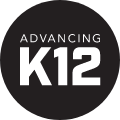
What do school culture, parent engagement, and student achievement have in common? How about transparency, trust, and public perception? Recruitment, retention, and fiscal responsibility?
Leadership is the shared thread tying all these elements together, and its importance is impossible to overstate. It is, without question, the single most important consideration when determining the potential of any school district.
As our school systems evolve, so too does our understanding of what makes an effective leader. Traditional hiring ideologies have focused on years of experience and education credentials, but those factors don’t always correlate to quality of leadership.
I took some time to review dozens of recent public job postings for superintendents, then compared those to the fastest-growing trends in education in an effort to pin down four primary areas of focus for school boards and district hiring teams in K-12 today. Here’s what I found:
1) Equity
This should come as no surprise, given the intensifying, single-minded nature of educational equity issues in recent years, but this theme is dominating administrator hiring processes, from job descriptions to interviews.It’s easy to see why. Aside from the political ubiquity of social justice issues today, state educational agencies and school districts see an opportunity for a refresh in the implementation of ESSA plans, given the Act’s many direct and indirect equity-based requirements.
There seems to be a certain amount of self-awareness among districts with historically poor achievement gaps or rapidly changing demographics, and the search for leaders with proven and measurable experience in such areas has taken off.
Example questions
- How do you intend to narrow the achievement gap in our school district?
- What are your thoughts on the importance of equity in our education system?
- Based on your knowledge of our community, what are some of the systemic causes of inequity affecting our students and what would you do as superintendent to address them?
- What experience do you have dealing with issues of equity, diversity, and social justice?
- How would you address the disparity in discipline experienced by special education students and students of color?
- What would you do as superintendent to ensure that every child, regardless of race or socioeconomic status, has the same access to high quality teachers?
2) Culture
“Leadership style” has long been a subjective concept with no right or wrong answer, but research has borne out a direct link between certain methodologies and the workplace culture they lead to. Empowerment, trust, and transparency are the bedrock upon which all extraordinary school cultures are built, and school boards are increasingly looking to move away from autocracy in favor of leaders who subscribe to the philosophy of defined autonomy.Yes, district administrators should be familiar with myriad issues, from budgets and facilities to instructional methodology and community development, but too many boards have made the mistake of overcorrecting by hiring for the few niche skills where previous superintendents fell short. Procedural knowhow is a nice thing to have, but the ability to inspire an entire school community to rally around a shared mission is infinitely more important in the long-term. Process can and will be learned on the job. Leadership skills take much longer to develop.
Example questions
- How would you describe your leadership style?
- What does district culture mean to you?
- What are some of the essential attributes of district culture and how would you establish or enhance that culture for our entire school community?
- What expectations would you have of your cabinet? What are some of the qualities you expect from the members of your leadership team?
- When you leave our district, what will your legacy be?
- How will you be a champion for our mission, both internally and externally? What steps will you take to advance your vision for our future?
3) Community
Even the strongest school districts cannot hope to provide everything their students need to prepare for life after graduation. As the role of student evolves from passive learner to active producer, the growth of entire communities has become closely tied to the bonds between school systems and the local economy. School boards are looking for leaders who can build bridges and bring people together from every corner: the private sector, government, faith, higher-ed, K-12, and other pillars unique to each community.These partnerships serve many purposes: expanding digital connectivity to underserved communities, developing and adapting an agile curriculum to meet the changing needs of the workforce, providing on-site job shadow, internship, or apprenticeship opportunities, and building proven pathways to college success. The age of the silo is past. Leaders who can network, strategize, and extend their influence beyond the traditional jurisdiction of a school district are indispensable.
Example questions
- What experience do you have building partnerships with other pillars of the community, including business and government?
- What roles do you think a community should fill in the education of its children?
- One of our biggest struggles has been a lack of home connectivity for many students. How would you address those issues outside the walls of our schools?
- How would you work with the higher education institutions in our area to ensure our students are adequately prepared for college?
- How would you ensure that our curriculum remains relevant to the needs of the modern workforce?
- In what ways do you believe a school district is responsible for the economic growth of its surrounding community?
4) Branding
How can we improve the perception of public education? This was one of the most pervasive questions in K-12 circles in the past year, but is it really an institutional issue, or is it something every district should be asking at a local level? Branding might be the single most important concept to come out of the school choice climate. It’s unfortunate that most districts are only just beginning to think about topics like marketing and PR, but the focal point now must be how critical these efforts are to the sustainability of public education.The challenges faced by superintendents are manifold. With the exception of very large school systems, well-equipped, established, and empowered communication teams are a rarity. One of the first orders of business for any new superintendent, especially those hired on to districts with downward enrollment trends, should be to review this entire field of operations. Do communication teams have a seat at the leadership table? Are they leveraging technology to reach the largest possible audience? Is there a cohesive messaging strategy based around your mission and is it a pervasive part of organizational culture or just words on a wall somewhere?
Example questions
- What is your strategy for turning around the perception of our district and raising our profile as a leader in education?
- What is your experience with educational branding and marketing?
- What are some of the channels you would use to trumpet our successes and advance our mission both in and out of our community?
- What would you do to make our district an attractive place to work for highly qualified candidates?
- Can you describe how the district communications team would function with you as superintendent?
- Based on what you know about our district, what differentiates us from other options in the area to potential new families and what would you do to raise awareness of those strengths?
What it Means
The superintendency is still very much a tight and enduring circle, with vacancies just as likely to be filled by those who recently left the same post in another district, as opposed to new blood. As previously mentioned, school boards often find themselves under pressure to hire the person who fills the gaps that may have led to the previous superintendent’s departure. If a district is reeling from financial issues, the odds of an open position being filled by someone with a school business background are pretty high. If the achievement gap is a recurring headline in local press, leaders who can show a track record of success in that area will always have a leg up.That said, the districts that tend to shine the brightest are those led by highly visible champions of the mission—leaders who provide the framework, live by it, and surround themselves with those who can see it through. It’s not always easy to break away from tradition, but a look at hiring and interview trends around the country gives hope to the idea that our understanding of executive leadership in schools is headed in the right direction.
To take the pulse of your culture and gauge the impact of your leadership, try the School Culture Survey.
WHAT'S NEXT FOR YOUR EDTECH? The right combo of tools & support retains staff and serves students better. We'd love to help. Visit skyward.com/get-started to learn more.

|
Advancing K12 Staff Edtech Thought Leaders |




